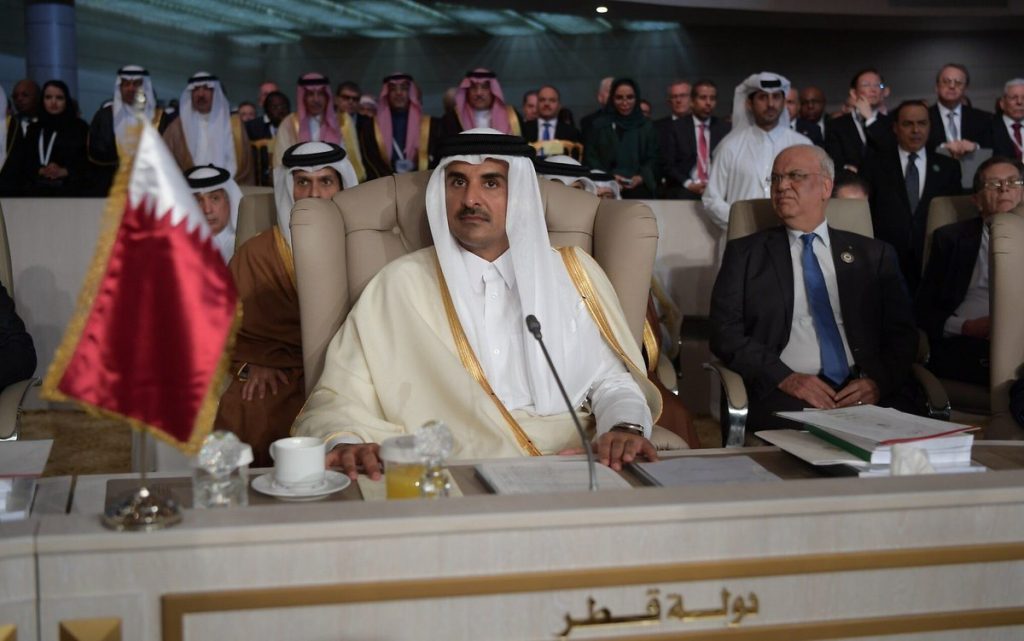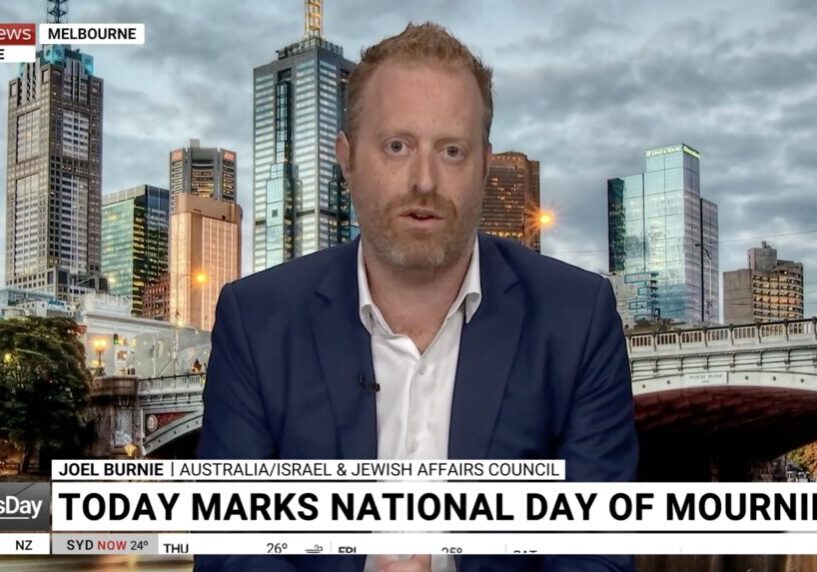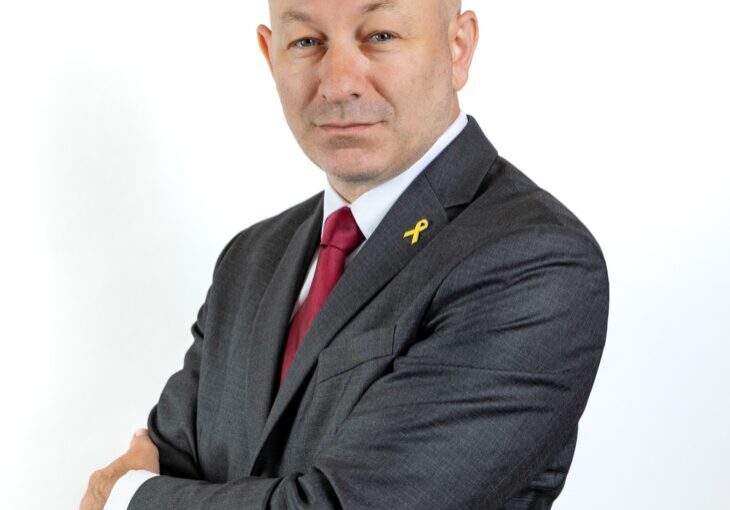Australia/Israel Review
To fight terror, confront its abettors
May 5, 2022 | Ehud Yaari

The Biden Administration has been making a significant effort to ensure that Israeli-Palestinian tensions do not flare up again and that steps are taken toward improving the West Bank economy. This effort, led by Secretary of State Antony Blinken, is threatened lately by the surge in terrorist attacks inside Israeli cities and the countermeasures taken by Israel to foil further attempts, as well as by the riots on Temple Mount. Unfortunately, calls on the Palestinians for restraint fall on deaf ears as long as certain other players are continually encouraging Palestinian youth to resort to violence. But the US has leverage among a number of these players and should use it to dissuade them from providing a favourable climate to ISIS, Islamic Jihad, the Popular Front and Hamas, as well as “lone wolves.”
First on the list is Qatar. Recently crowned by the US as a Major Non-NATO Ally and preparing to host later this year the prestigious soccer World Cup tournament, this tiny, affluent emirate has become the primary cheerleader for Palestinian terrorism. Not only does the ruler, Sheikh Tamim, refrain from expressing any criticism of killing sprees on the streets of Israeli cities or speak out against youth turning the al-Aqsa court into a scene of violence, but he also directs his media empire led by the Al Jazeera broadcast network to pour oil onto the flames, constantly exacerbating tensions. For years Doha has been hosting and financing Hamas’ leadership, including many operatives involved in initiating attacks on Israel. The country has become an important link in the supply chain of terrorism.
True, Qatar maintains unofficial ties with Israel, even after 2000 when it closed the Israeli trade bureau in its capital, but it exploits the relationship mainly in order to gain permission to channel funds to the Gaza Strip. Through coordination between Jerusalem, Hamas, the Quartet (including the US) and the UN, the Qatari special envoy Muhammed al-Emadi has been allowed to move large sums of cash to assist needy families there and finance some development projects. Sure, Israel sees an advantage in preventing an implosion of the Gaza Strip into dangerous impoverishment – however, it is high time to alter the equation: The US should back Israel serving notice that Mr. Emadi and the monies he brings are no longer welcome as long as Qatar persists in encouraging violence. The arrangements for delivering aid should be suspended – not abolished – until Tamim reassesses his attitude.
No doubt such a move would create a serious crisis with Hamas and might ignite fresh protest salvos of rockets, but as has happened several times before, a new round of hostilities will not last too long and the Qataris will be ultimately compelled to modify their position. Hamas simply cannot afford to lose the Qatari funds. And the opportunity must not be missed to get Qatar out of the choir singing the praise of whoever kills Israelis.
The Qataris’ closest ally, President Erdogan of Turkey, who has permitted Hamas military headquarters to operate from Istanbul, is a case in point. Erdogan “strongly” condemned the latest terrorist attacks in Israel and was also very restrained in his reaction to the Ramadan skirmishes on the Temple Mount. Following his meeting last month with Israeli President Isaac Herzog, Erdogan is expected to exercise restraint on Hamas in the coming months while maintaining his relationship with the US-designated terrorist group. This precedent should help Qatar’s Sheikh Tamim assess his own position.
Half a dozen Arab governments have already made statements denouncing the attacks and all Arab parties and municipal councils inside Israel have joined in. Now pressure should be applied on Qatar to adhere to zero tolerance of terrorism and commit to stop egging terrorists on.
At the same time, the US should not object to Israel informing Hamas – first quietly and if necessary publicly – that it has to tone down preaching to young Palestinians that their sacred national duty is to carry out acts of terrorism. Israel can warn that it would be forced to suspend the implementation of understandings that are designed to improve the welfare of the population in Gaza; for example, repeating or extending this week’s closure of the Erez crossing, a move that bars the entry of 20,000 Gaza labourers daily into Israel, and freezing a long list of other measures to improve conditions that were agreed upon over recent months. Again, Hamas might respond with rocket fire, but Israel would be better served fighting another round over that matter of principle.
Lastly, one might thank President Mahmoud Abbas of the Palestinian Authority (PA) for the half-hearted condemnation he deigned to issue in the wake of the recent terror attacks after repeated requests by the US, but this isn’t enough. The PA played a major role in incitement to demonstrate on the Temple Mount, spreading fabricated claims that Israel is seeking to change the status quo there. The PLO Executive Committee, Fatah’s Central Committee and the Palestinian Government are expected to issue clear statements of condemnation, in keeping with the commitments they undertook in the Oslo Accords. If they fail to meet this demand, Israel could apply pressure by suspending some programs in the long list of those designed to improve the economic situation in the West Bank. The PA must also be required – as the US makes plain in every conversation with PA officials – to commit to discontinue paying monthly salaries, welfare allocations and other subsidies to people arrested from now on for engagement in terrorism. Naturally, a move like this is bound to heighten tensions, but challenging a culture sanctifying violence will never come without risks.
A principled policy aimed at changing the bloody rules of the game should have been enacted years ago, but it isn’t too late to do so now. We may yet discover that there is broader international support for this demand than we imagine. A decision to adopt this course of action will indeed temporarily ratchet up tensions and invite crises, but what exactly are we waiting for?
Allowed to proceed in the current mode, the combination of Qatar, Hamas and the PA is guaranteed to cause an expansion of the cycle of brutal violence inflicting pain on both Jews and Arabs. If the US truly aspires to achieve a settlement of the Middle East conflict, it cannot turn a blind eye to those seeking to obstruct further progress by igniting cycles of terror and counterterror.
A good first step would be to persuade Jordan, Egypt, the Emirates, Morocco and others to denounce the Palestinians’ violation of the sanctity of al-Aqsa in return for a clear Israeli commitment to maintaining the status quo. There’s no time like the present to get started in the right direction – better now than waiting around to find out what might happen during next year’s Ramadan.
Ehud Yaari, author of eight books on Israeli-Arab relations, is a Lafer International Fellow at The Washington Institute for Near East Policy and Israel Television Channel 2’s Middle East Commentator. © Times of Israel (www.timesofisrael.com) reprinted by permission, all rights reserved.
Tags: Hamas, Palestinian Authority, Palestinians, Qatar, Terrorism, Turkey






